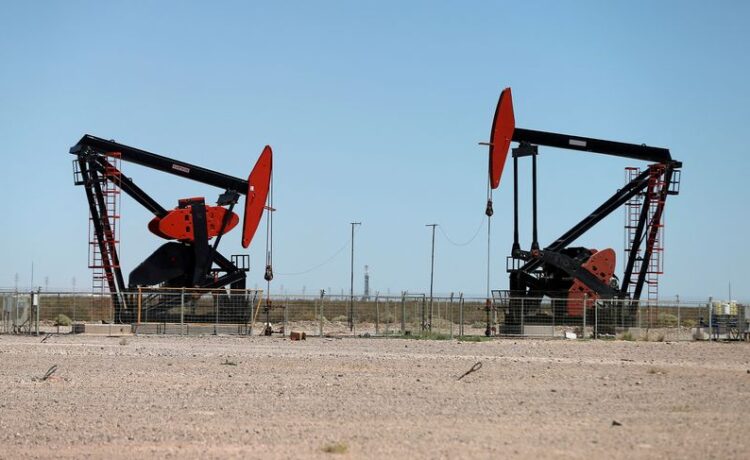By Florence Tan
SINGAPORE (Reuters) – Oil prices inched higher on Monday, extending gains for a second session as U.S. efforts to replenish strategic reserves provided some support, although concerns of crude oversupply and softer fuel demand growth next year lingered.
Brent crude futures rose 11 cents, or 0.2%, to $75.95 a barrel by 0119 GMT, while U.S. West Texas Intermediate crude futures were at $71.30 a barrel, up 7 cents, or 0.1%.
Both contracts jumped more than 2% on Friday but fell for the seventh straight week, their longest streak of weekly declines since 2018, on lingering oversupply concerns.
The recent price weakness drew demand from the U.S., which has sought up to 3 million barrels of crude for the Strategic Petroleum Reserve (SPR) for delivery in March 2024.
“We know the Biden Administration is in the market looking to refill the SPR, which will provide support,” IG analyst Tony Sycamore said in a note, adding that prices are also being supported by technical chart indicators.
Despite the Organization of the Petroleum Exporting Countries and allies, together called OPEC+, having pledged to cut 2.2 million barrels per day (bpd) in the first quarter, investors remain sceptical supply will drop, with output growth in non-OPEC countries seen leading to excess supply next year.
RBC Capital expects stock draws of 700,000 bpd in the first half but only 140,000 bpd for the full year.
Latest consumer price index data from China, the world’s top oil importer, showed rising deflationary pressures as weak domestic demand cast doubt over the economic recovery.
Chinese officials pledged on Friday they would spur domestic demand and consolidate and enhance the economic recovery in 2024.
This week, investors are watching out for guidance on interest rate policies from meetings at five central banks, including the Federal Reserve, and data on U.S. inflation, for their impact on the global economy and oil demand.
(Reporting by Florence Tan; Editing by Sonali Paul)
















